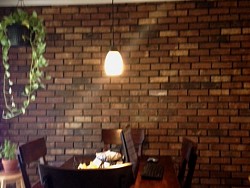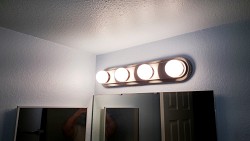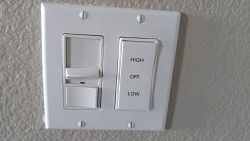How Much Does it Cost to Install a Smart House System?
Are you looking to install a home automation system ("smart house")? You can typically expect to pay between $1,138 and $3,095 for the system components, supplies, and labor.
You'll find there's quite a range in the cost to install a home automation system. This is due to 2 main factors:
- Type Of System Wiring
Hardwired -- The most reliable wiring method, least vulnerable to hacking by tech-savvy thieves, a hardwired system also provides the fastest response at a time when seconds count. However, although relatively easy to install during new home construction, it is complicated and expensive to retrofit.
Wireless -- All you need to connect a wireless smart home system is a single electric outlet. It is simple to set up, but the drawback is that this type of system is vulnerable to interference and hacking.
Hybrid -- Hybrid home automation combines wired and wireless technology into a single coherent system.
- Household Functions Covered By a Home Automation System
Lighting -- Program your smart house system to manage your interior and exterior lighting. Each individual light can be controlled by a timer or a motion sensor, which detects when everyone has left a particular room. This convenient electricity-conserving feature offers another advantage: security. While you are away for extended periods, it can randomly turn lights on or off, giving the impression that your house is occupied.
Security -- Monitor your home security and safety wherever you may be. A home automation system can allow you to lock or unlock your house doors and windows to admit authorized persons and keep out intruders, close your garage door, activate or deactivate your alarm, and check security cameras … all remotely. It may also include functions that will detect emergencies such as unusual dampness or flooding, fire, and gas or carbon monoxide leaks. Motion sensors can alert you not only as to whether someone is in your house, but even when a particular drawer is opened!
Heating and Cooling -- Set your home heating or cooling for the times when you'll be at home and active. You'll also be alerted if the indoor temperature is too high or low. This is essential information when, for example, your pets are alone in the house. Your smart home system also makes heating and cooling more efficient by opening and closing curtains and blinds.
Irrigation -- Conserve water; irrigate your lawn and garden only when necessary with a smart home system, which combines moisture sensors with real-time weather information to determine exactly when and how much to water.
Home Entertainment System -- Never look for the remote again. Instead, manage your home entertainment systems and speakers via one centralized "command center."
Household Appliances -- If desired, select hardware to control any of your household appliances, from your kitchen stove to telephones and Internet connections. It can even keep your fish tank or hot tub at a comfortable temperature.
Other Functions -- The home automation technology offers a wealth of possible applications, such as alarms that remind aging-in-place seniors when it's time to take their medication. Discuss your needs with a qualified electrician and see how to put a smart house system to work for you.
Cost Breakdown
Cost to install a home automation system will normally include:
- Materials -- The system consists of 4 main components. Three of these -- the software program, transceiver (coordinator), and triggers (sensors and switches) are included in the cost. Not necessarily included is the 4th component, the user interface, which may be a digital screen, tablet, smart phone, or PC. In addition, you'll need noise filters and couplers. Make sure you have a manual override or backup for all functions.
- Labor -- Labor involves installing and activating the system. If an upgrade of your home's electrical wiring is necessary, this will add to the cost.
- Estimate -- The initial estimate, which may include an onsite inspection, is often free.
Get the Most for Your Money
Not sure how useful a home automation system might be for you? Try a reasonably priced starter kit to manage your lighting and an appliance or two. Then you'll be able to add on compatible subsystems of your choice. Rapid advances in smart house technology mean the price of fancy add-ons may well go down by the time you're ready for them.
Save on material and labor costs by installing only the features that your family really needs -- and the ones that promise a good ROI when you sell your home (example: energy-efficient heating and cooling controls). Home automation systems are very flexible.
Contact your homeowners' insurer to see whether the advanced security provided by a smart house system will make you eligible for lowered premiums.
Cost to Hire a Electrician
Articles and Tips
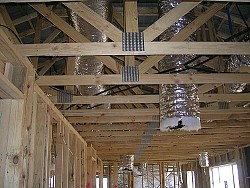
Understanding The Cost Of Rough Electrical Wiring
Photo of roughing in electrical wiring by Mike and Valerie/Flickr. Rough electrical wiring cost can... Read More
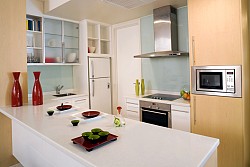
Is It Safe To Microwave?
The convenience of microwave ovens is undeniable, particularly with newer under-counter and over-range... Read More
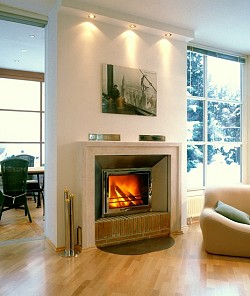
Get Your Fireplace In Great Shape For The Holidays
A blazing fire and a fresh dusting of snow form the perfect backdrop to the winter holidays, whether... Read More
